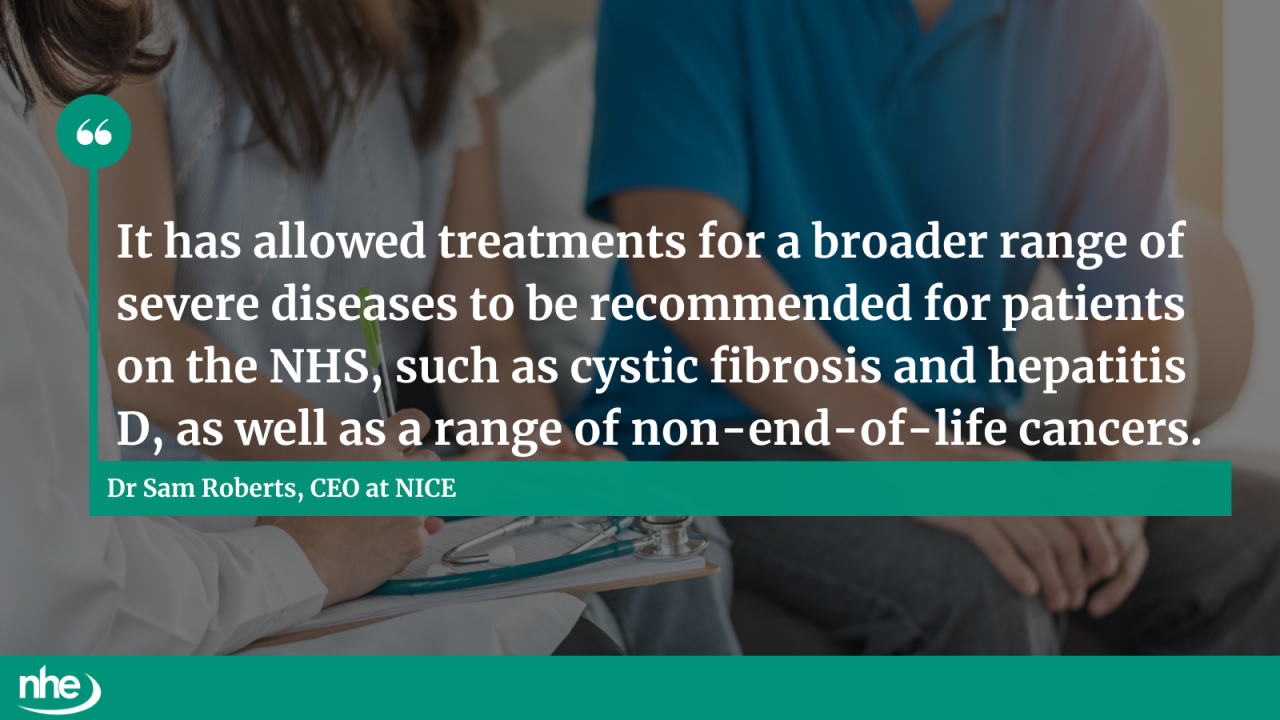The National Institute for Health and Care Excellence has concluded that its new severity modifier is working as intended, despite some organisations raising concerns that it has been an influencing factor behind some negative decisions.
The decision was made at NICE’s last board meeting, with senior figures believing the modifier has allowed treatments for a broader range of severe diseases to be recommended.
The severity modifier replaced the old end-of-life modifier in 2022 in a bid to enable extra weight to be given to medicines that combat severe disease, rather than just end-of-life treatments.
The review
The review indicated that, compared to the old end-of-life modifier (82.7%), the new severity weighting has seen a higher proportion (84.4%) of positive recommendations.
The new working practice means the weighting has been applied to diseases like non-end-of-life cancers as well as those with a high impact on patients that would not have qualified for the extra weighting under previous rules – like cystic fibrosis.
Late-stage cancer medicines are also being recommended, helping combat colorectal, lung and breast cancer.
The proportion of positive cancer recommendations is higher (80%) under the new weighting guidelines than under the old ones (75%) – this is the same for positive recommendations for advanced cancer treatments (81% opposed to 69%).

“The analysis shows the severity modifier is doing what it was designed to do,” said Dr Sam Roberts, CEO at NICE. “It has allowed treatments for a broader range of severe diseases to be recommended for patients on the NHS, such as cystic fibrosis and hepatitis D, as well as a range of non-end-of-life cancers.”
The response
Charity Breast Cancer Now believes that the new severity modifier impacted the approval of Enhertu – a HER2-low secondary breast cancer treatment. It is the first – and only – licensed targeted treatment for the disease.
Despite this, NICE, NHS England and suppliers Daiichi Sankyo and AstraZeneca recently failed to reach a commercial agreement to enable NHS access to the treatment. The list of countries Enhertu is available in includes:
- Scotland
- Australia
- Canada
- USA
- Japan
CEO at Breast Cancer Now, Claire Rowney, said: “We are deeply disappointed that NICE has opted not to make changes to the severity modifier following its recent review, and believe its introduction was pivotal to the recent devastating rejection of life-extending HER2-low secondary breast cancer treatment, Enhertu.”
The charity says it stands firm in its conviction that urgent change is needed.
NICE’s board has agreed to continue monitoring the impact of the severity modifier – this will include additional research into societal preferences for the valuing of medicines that treat severe conditions.
Image credit: iStock



















